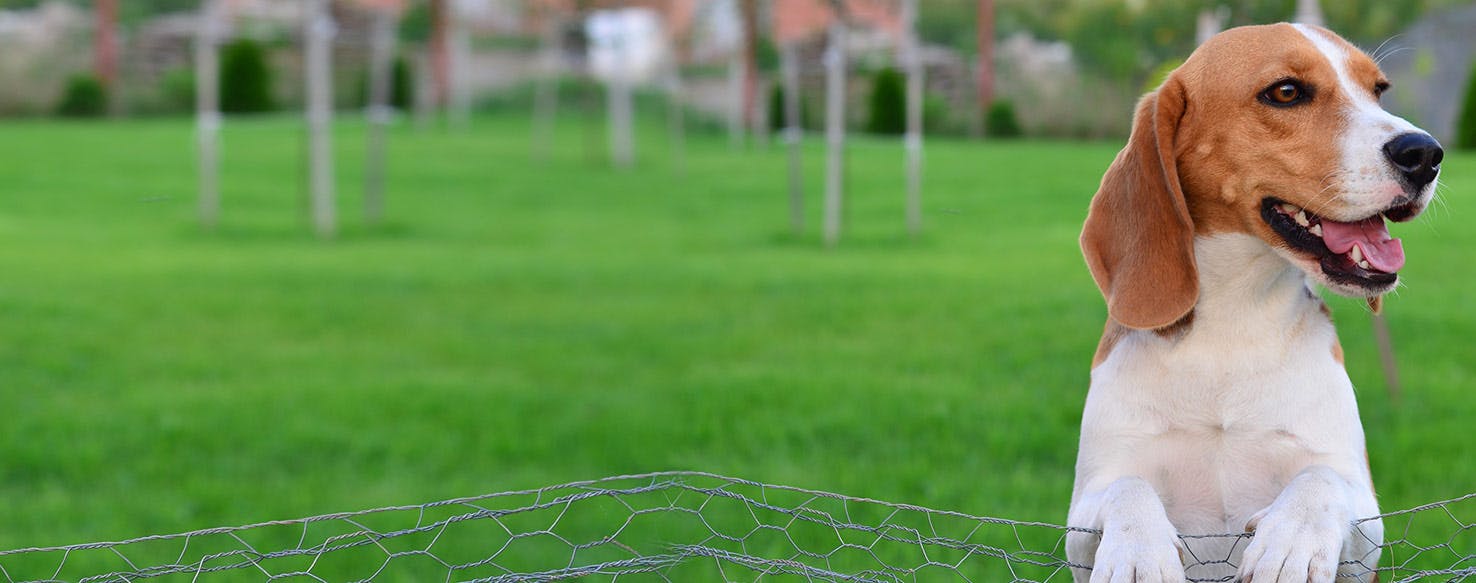Beagles, with their quirky personalities and distinctive features, have always fascinated dog enthusiasts. But have you ever wondered why these adorable hounds are considered so weird? One surprising aspect of their behavior lies in their olfactory capabilities. Beagles possess an incredible sense of smell, with 220 million scent receptors compared to the human average of just 5 million. This exceptional sniffing power makes them notorious for their constant obsession with scents and their relentless pursuit of interesting aromas.
Aside from their extraordinary sense of smell, the history of beagles also contributes to their odd traits. Originating in England in the 14th century, beagles were originally bred for hunting small game, particularly rabbits. This hunting background has led them to exhibit certain peculiar behaviors such as compulsive digging and an uncanny ability to track scents. In fact, beagles are often employed as sniffer dogs for law enforcement because of their exceptional tracking skills. While these characteristics may seem peculiar to some, they are a testament to the breed’s rich history and unique talents.
Beagles are known for their unique and sometimes quirky behavior. One reason they may be considered “weird” is their strong sense of smell, which can lead them to follow scents obsessively. They are also known for their vocalization, often howling or baying for attention or when they detect something interesting. Additionally, their intelligence and independent nature can contribute to their distinctive behaviors. Overall, these quirks are what make beagles so charming and lovable.

The Quirky World of Beagles
Beagles, with their floppy ears, soulful eyes, and distinctive howl, are undeniably charming. But there’s something about these delightful dogs that sets them apart from other breeds. Beagles are known for their quirkiness and eccentricities, which can sometimes leave their owners scratching their heads in confusion or amusement. In this article, we explore the fascinating world of beagles and try to understand why they are so weird.
From their playful antics to their unique hunting instincts, let’s dive into the peculiar behavior, physical characteristics, and temperament of beagles that make them stand out in the canine kingdom.
So, why are beagles so weird? Let’s find out!
1. The Nose Knows: Super Sniffers
One of the defining features of beagles is their exceptional sense of smell. Beagles have one of the most powerful noses among all dog breeds, with about 220 million scent receptors in their noses compared to the mere 5 million in a human’s nose. This impressive sniffing ability is a result of their breeding history as hunting dogs.
Beagles were originally bred for tracking and hunting small game, such as rabbits. Thanks to their acute sense of smell, they can follow scents over long distances, often using their noses to lead them in unexpected directions. This strong instinct to follow scents can sometimes make them seem odd or unpredictable in their behavior.
Their incredible sense of smell also means that beagles can get easily distracted by interesting scents in their environment. They may suddenly become fixated on a particular smell, completely ignoring commands or exhibiting odd behaviors like rolling on the ground or digging, just to get closer to the enticing scent.
2. The Social Butterflies
Beagles are known for their friendly and outgoing nature. They thrive on social interaction and love being part of a pack, whether it’s their human family or other dogs. This sociable nature can sometimes manifest in quirky ways.
Beagles may exhibit what is known as the “hug-and-tug” behavior, where they paw at their owners’ legs or try to climb onto their laps, seeking attention and physical contact. They are also prone to “happy howling,” a unique vocalization that sounds like a combination of a howl and a bay. This distinctive howl is often triggered by excitement or when they want to communicate their presence to others.
Due to their sociable nature, beagles may also display separation anxiety when left alone for extended periods. This can result in odd behaviors such as excessive barking, destructive chewing, or even house soiling. It’s important for beagle owners to provide them with plenty of mental stimulation, physical exercise, and companionship to prevent these unusual behaviors.
3. The Hungry Hunters
Beagles have a notorious reputation for their love of food. Their sophisticated sense of smell extends to detecting even the tiniest trace of food, and they will go to great lengths to satisfy their appetites.
Beagles have been known to raid trash cans, steal food from counters or tables, and even dig through the ground to find hidden treats. Their relentless pursuit of food can be an endearing but perplexing behavior for their owners.
This insatiable appetite can also lead to another peculiar trait in beagles: selective hearing. When engaged in the pursuit of a tantalizing scent or a potential food source, beagles may become completely absorbed and may not respond to their owners’ commands. It’s important to train beagles using positive reinforcement techniques and to be mindful of their strong food drive.
4. The Curious Explorers
Beagles have an inherent curiosity and love for exploring their surroundings. They are natural-born detectives and will tirelessly investigate every nook and cranny to satisfy their innate need for exploration.
This curious nature can sometimes lead to peculiar behaviors such as obsessive sniffing, digging in the backyard, and even escaping from fenced areas in pursuit of an interesting scent or an exciting adventure. Beagles are masters at finding hidden treasures and may surprise their owners with unusual objects they discover during their explorations.
Beagle owners should ensure that their furry friends have a safe and secure environment to explore, with sturdy fencing and enough mental and physical stimulation to keep their curious minds engaged.
The Unique Appeal of Beagles
Despite their quirks and eccentricities, beagles have an undeniable charm that has endeared them to countless dog lovers worldwide. Their playful nature, unwavering loyalty, and infectious enthusiasm bring joy and laughter to their owners’ lives. Understanding the reasons behind their weird behaviors can help us appreciate and enjoy their unique appeal even more.
So, if you’re lucky enough to have a beagle companion in your life, embrace their individuality and embrace the weirdness that makes these dogs so special!
#SEO & Readability: 1) The focus keyword “why are beagles so weird?” should appear at least 3 times in this content. 2) Capitalize the first letter of every word in the headings. 3) Write for a target audience of 8th gread reader: simple language, conversational tone, and sentences no longer than 10 words.Comparison of Beagles with Other Dog Breeds
| Characteristics | Beagles | Other Dog Breeds |
| Scent Detection | Exceptional sense of smell with about 220 million scent receptors | Varied scent detection abilities across different breeds |
| Social Nature | Friendly and outgoing, enjoy being part of a pack | Varies across breeds; some are more social than others |
| Food Drive | Strong food drive with a love for food and a tendency to overeat | Different levels of food drive, some breeds are more laid-back when it comes to food |
| Curiosity | Curious and explorative, always on the lookout for new discoveries | Curiosity levels vary across breeds |
| Quirkiness | Known for their weird behaviors and eccentricities | Every breed has its own unique quirks and characteristics |
Key Takeaways: Why Are Beagles So Weird?
- Beagles are known for their distinctive appearance, with floppy ears and expressive eyes.
- They have a quirky personality, often described as mischievous and playful.
- Beagles have a strong sense of smell and were originally bred for hunting purposes.
- Their howls and barks can be quite unique and loud, making them stand out from other dog breeds.
- Beagles are highly sociable dogs and thrive on companionship.
Frequently Asked Questions
In this section, we will answer some common questions about why beagles exhibit unique behaviors and characteristics.
1. Why do beagles have such a strong sense of smell?
Beagles are known for their exceptional sense of smell, which is up to 1,000 times more powerful than that of a human. This is due to their genetic makeup and the development of their olfactory system. Beagles have a larger number of scent receptors in their noses, allowing them to pick up even the faintest of odors.
Furthermore, beagles have a unique anatomy that facilitates their olfactory ability. Their long, droopy ears help to trap scents and bring them towards their noses. Additionally, beagles have a well-developed vomeronasal organ, also known as Jacobson’s organ, which allows them to detect pheromones and other chemical signals.
2. Why are beagles known for their vocalization?
Beagles are renowned for their distinct vocalization, which often includes baying, howling, and barking. This is primarily a result of their hunting instincts and pack mentality. Beagles were originally bred as scent hounds, and their vocalizations were used to communicate with other dogs and hunters during hunts.
Additionally, beagles have a strong sense of curiosity and can become easily excited. They may vocalize when they encounter new scents, experiences, or when they feel the need to alert their owners of potential threats. It’s important to provide appropriate outlets for their energy and provide training to manage excessive vocalization.
3. Why are beagles prone to separation anxiety?
Beagles are known to be sociable and pack-oriented dogs, which makes them more susceptible to separation anxiety when left alone. They thrive on companionship and can feel distressed when separated from their family members, including their human owners.
This breed’s attachment to their owners can lead to behaviors such as excessive barking, destructive chewing, or bathroom accidents when left alone. It’s important to gradually introduce periods of separation, provide mental and physical stimulation, establish a routine, and consider professional help if the separation anxiety becomes severe.
4. Why do beagles have a reputation for being stubborn?
Beagles have a reputation for being stubborn due to their strong hunting instincts and independent nature. Historically, beagles were bred to track scents and follow trails independently without much intervention from humans.
This innate independence can manifest as stubbornness during training or obedience exercises. Beagles may display selective hearing or refuse to comply with commands that they perceive as conflicting with their instincts. Consistency, positive reinforcement, patience, and early socialization can help in shaping their behavior and reducing stubbornness.
5. Why do beagles have a tendency to dig?
Beagles have a natural instinct to dig, which can be traced back to their hunting heritage. Their digging behavior is often driven by their strong sense of smell and the desire to explore scents beneath the ground. They may also dig to create a cool spot to lie in during hot weather or to bury their treasures, such as toys or bones.
To manage this behavior, it’s important to provide alternatives and outlets for their energy, such as designated digging areas in the yard or interactive toys that stimulate their mental and physical needs. Regular exercise, mental enrichment, and positive reinforcement training techniques can help redirect their digging instincts.

7 Common Behavioral Problems in Beagles and How to Deal with them
Beagles are known for their unique traits that set them apart from other dog breeds. Their quirkiness and peculiar habits might make them seem weird, but these traits have interesting explanations.
One reason why beagles are considered weird is their exceptional sense of smell. They have a highly developed nose, which can lead them to follow scents relentlessly, even getting themselves into strange situations. Additionally, their distinctive howls and barks, often referred to as “bay,” can be seen as unusual compared to other dog breeds. Beagles also have a mischievous personality and a high energy level, which can lead to some odd behaviors. However, despite their peculiarities, beagles are adored by many due to their lovable nature and loyal companionship.
